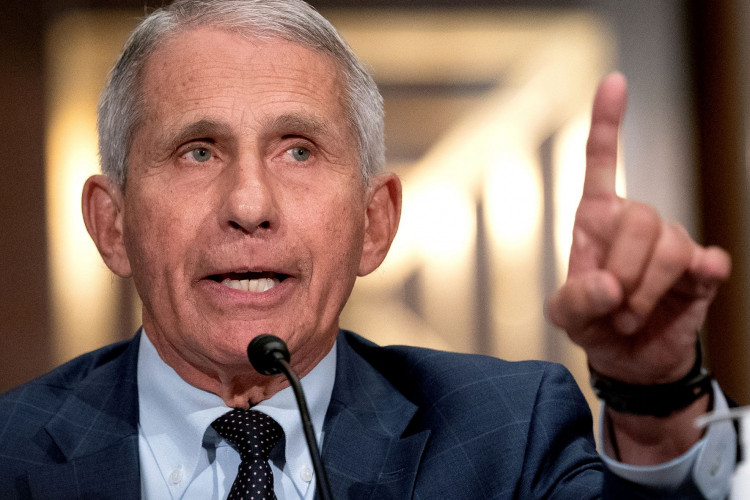White House's chief medical adviser Dr. Anthony Fauci is raising concerns about two "pretty troublesome" COVID variants as winter draws nearer. In the U.S., the highly contagious Omicron BA.5 strain still predominates.
However, new information provided by the Centers for Disease Control and Prevention (CDC) indicates that it is starting to lose ground to other, more recent varieties.
According to the agency's most recent estimates of variant proportion, BA.5 dropped to 67.9% of all cases, down from around 80% at the beginning of October. Meanwhile, about 17% of new infections are brought on by BQ.1, BQ.1.1, and BF.7. For roughly 3%, BA.2.75 and BA.2.75.2 are to blame. Additionally, it appears that BQ.1 and BQ.1.1 are on course to surpass the BA.4.6 strain, which is presently responsible for 12.2 percent of infections.
Dr. Fauci said that the two BQ.1 and BQ.1.1 variants of Omicron's BA.5 subvariant both contain risky "qualities or characteristics that could evade some of the interventions we have." One week after they weren't even significant enough to report, the two sublineages now account for more than 10% of all current cases in the U.S., according to the most recent statistics from the CDC.
The likelihood that the two strains would eventually replace BA.5 as the predominant variety in the nation is not certain. Dr. Fauci cautioned Americans against letting their guard down by warning that if they do spread quickly, they might threaten to undo a national drop in COVID cases, hospitalizations, and deaths.
"When you get variants like that, you look at what their rate of increase is as a relative proportion of the variants, and this has a pretty troublesome doubling time," Dr. Fauci said.
The leading authority on infectious diseases in the country also expressed worries that the changes in the variations could circumvent some drugs, including Evusheld, a crucial antibody medicine used to help protect immunocompromised people. Fauci asserted that he believes the improved boosters from Pfizer-BioNTech and Moderna will be able to tamp down any potential increase in instances brought on by BQ.1.
More than 14 million Americans have received the new boosters, according to CDC data. In a White House press briefing last week, Dr. Ashish Jha, the leader of the COVID task force under the Biden administration, said he expects more individuals to get immunized this month before the start of the holiday season.





